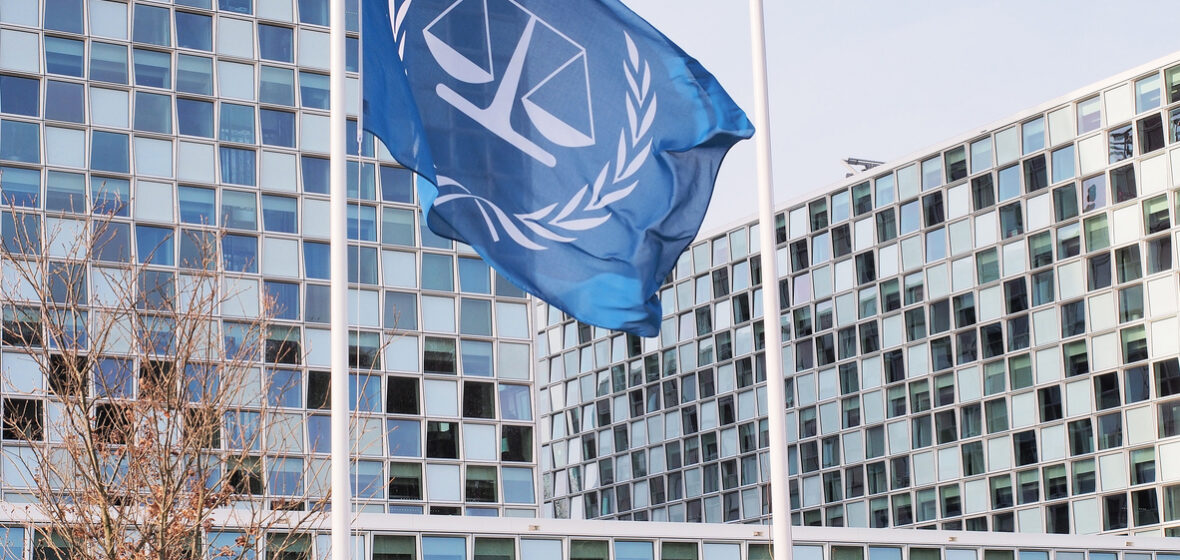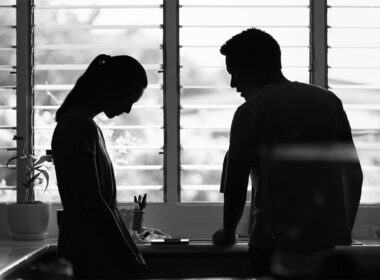An expert in international law tells LSJ that the recent arrest warrant applications for leaders of Israel and Hamas are “very significant, because what it does suggest is that the age of impunity for Western leaders may be coming to a close.”
On 20 May , the chief prosecutor of the International Criminal Court (ICC), Karim Khan, announced his office had applied for arrest warrants for leaders of both Israel and Hamas for alleged crimes stemming from the Hamas attack on southern Israel on October 7 last year, and the subsequent retaliatory measures carried out by Israel in Gaza.
LSJ spoke with Dr Juliette McIntyre, a lecturer in law at the University of South Australia, about this recent announcement and what the repercussions are for the parties involved, victim-survivors and their families, the expert legal panel engaged by the ICC, and the functions and role of the ICC.
Under the supervision of Judge Hilary Charlesworth of the International Court of Justice, McIntyre’s PhD thesis examined the rules of procedure of the International Court of Justice. Her particular area of specialism is international courts and tribunals, with a focus on procedure.
Of the arrest warrants, she says, “In the short, immediate term there’s not necessarily a huge effect. It’s not going to cause everyone to drop what they’re doing and reach a ceasefire, but it does apply pressure. What we’re seeing is that on the whole, around the world, states are starting to say ‘enough is enough, this has gone well beyond anything that could be considered acceptable’.”
She adds, “We’re seeing states place pressure on Israel through their own diplomatic channels, and the recognition of Palestine ties into this as well. The recent recognition from Spain and Ireland and Norway. It’s all these pieces of the puzzle – including statements from the UN General Assembly and attempts to get a resolution at the UN Security Council – all coming together.”
McIntyre says the role of the ICC is clear and impartial, independent of the UN and states.
“The office of the prosecutor [Karim Khan] is independent of all of these, and their job is really just to say, ‘a line here has been crossed in terms of the conduct and we believe it amounts to a crime, and our job here is to prosecute those crimes,’” she says.
“What happens then is that this independent organisation, having made that assessment, may cause states that have been supporting Israel up until this point to go ‘I don’t know if I can continue to support someone who has an arrest warrant out, that does not look good for us’, assuming that warrants are issued. It will have the effect, I think, of chilling support for Israel from certain quarters of the globe.”

Arrest warrants issued for Israeli and Hamas leaders
Since 2002, the ICC has jurisdiction over individuals accused of genocide, war crimes, and crimes against humanity, after certain preconditions have been met. On 17 July 1998, the Rome Statute of the International Criminal Court treaty was adopted at a diplomatic conference in Rome. On 1 July 2002, in accordance with article 126 of the Rome Statute, the ICC was established as “a permanent institution and shall have the power to exercise its jurisdiction over persons for the most serious crimes of international concern”.
Chief prosecutor since 2021, Karim Asad Ahmad Khan KC is a British lawyer with expertise in international criminal law and international human rights law.
Khan applied for arrest warrants for three Hamas leaders for war crimes and crimes against humanity: Yahya Sinwar, Mohammed Diab Ibrahim al-Masri, and Ismail Haniyeh. Khan’s office had also applied for arrest warrants, on “reasonable grounds” for their “criminal responsibility”, for Israeli Prime Minister Benjamin Netanyahu and Defence Minister Yoav Gallant for war crimes and crimes against humanity.
The three Hamas leaders are alleged to be criminally responsible for extermination, murder, hostage taking, rape and other acts of sexual violence, torture, and cruel treatment.
Both Netanyahu and Gallant are alleged to be criminally responsible for international crimes including starvation of civilians as a method of warfare, wilfully causing great suffering, wilful killing, intentional attacks against a civilian population, extermination and/or murder, and persecution. Khan’s office conducted investigations on-site, including conducting interviews with victim survivors, and evidence collected about the Israeli hostage conditions in Gaza.
In order to review the evidence and provide expert legal analysis in support of these arrest warrants, Khan recruited a panel of international legal experts. Khan said evidence found by his team indicated Israel had “intentionally and systematically deprived the civilian population in all parts of Gaza of objects indispensable to human survival. This took place alongside other attacks on civilians, including those queuing for food; obstruction of aid delivery by humanitarian agencies; and attacks on and killing of aid workers, which forced many agencies to cease or limit their operations in Gaza.”
McIntyre says, “The ICC has come under fire in previous years for not pursuing potential war criminals from western states. For a while, it was accused of only ever going after perpetrators from African states, so this is very significant, because what it does suggest is that the age of impunity for Western leaders may be coming to a close. It reinforces the idea that you may have a lot of political power, but these independent organisations are going to do their best to hold you to account. Any finding that you’re a criminal is going to hang over your head forever.”
She adds, “If he never leaves Israel again, Netanyahu is probably safe [from arrest] and he could travel to the US with ease. Israel has no obligation to the ICC.”
Israel is not a member of the ICC, nor does it recognise its jurisdiction. Several Israeli ministers denounced Khan’s announcement, as did Hamas which responded that the ICC had mistaken the victim for the executioner.
As reported by Al Jazeera on 5 May – one of the only international media outlets with journalists in Palestine – at least 35,562 people have been killed in Israel’s war on Gaza. Aid agencies have raised the alarm on potential famine, lack of medical supplies and fuel.
In the Hamas-led attach on October 7, at least 1,139 people were killed according to an Al Jazeera tally based on Israeli statistics, and around 250 others were taken hostage. 105 hostages were released as part of an exchange last year.
Experts in international law have indicated the arrest warrants are likely to be issued within two months as a result of the extensive work undertaken in the prosecutor’s request and the relatively low threshold to justify arrest warrants being issued.
Three judges in the ICC pre-trial chamber are now tasked with determining whether there are reasonable grounds to believe war crimes and crimes against humanity have taken place, justifying arrest warrants. This is not an immediate process, nor is it likely to have speedy consequences. The judges’ process may take months, and if arrest warrants are issued, actual execution of these warrants is unlikely to occur in the near future.
The US leads condemnation of ICC actions
Israel’s major ally, the US, condemned the arrest warrant requests for Israeli leaders, but neither the US nor Israel are party to the Rome Statute of the International Criminal Court (Rome Statute).
“For a state party like Australia, we’re under an obligation to support investigations that the court has opened,” McIntyre says.
“We have stated previously that we will do that and [Prime Minister Anthony] Albanese came out said, ‘we respect the court and the courts processes’. I think the US has obviously said ‘no, we will sanction people who are involved in this investigation’. They’ve done that before, so this is not the first time they’ve gone down that path of tightening sanctions on ICC officials. The US doesn’t like scrutiny of its own officials or of officials of its allies, but it’s perfectly happy, seemingly for Hamas to be investigated.”
“The standard that the prosecutor is applying as an independent party is not ‘whose side are you?’, but ‘does this reach the threshold of a war crime? I don’t care who committed it,’ and so that’s what we’ve seen here … [a]nd it’s a different list of crimes, it’s not like he’s accusing them of all the same things so this general critique that came out that there’s some kind of moral equivalence somehow between the two [Israeli leaders and Hamas leaders] is a real furphy. There’s no moral equivalence here. The point is: have you applied the law correctly? Have you breached the law? And if you have breached the law, well, you ought to face the consequences for that.”
“Hamas is recognised as a terrorist organisation in most parts of the world, and I don’t think that’s going to change anytime soon, but it’s not just about Hamas. It’s about the state of Palestine, and I think what certain states are starting to say now is ‘look, we recognize Palestine as a state that exists. It has problems, potentially, with Hamas and terrorist organisations, but lots of countries have those problems, right? There are coups around the world, all the time. This is not some kind of unique phenomenon for Palestine necessarily, and it doesn’t prevent Palestine from being a state and working towards peace and security as a state in the future.”




